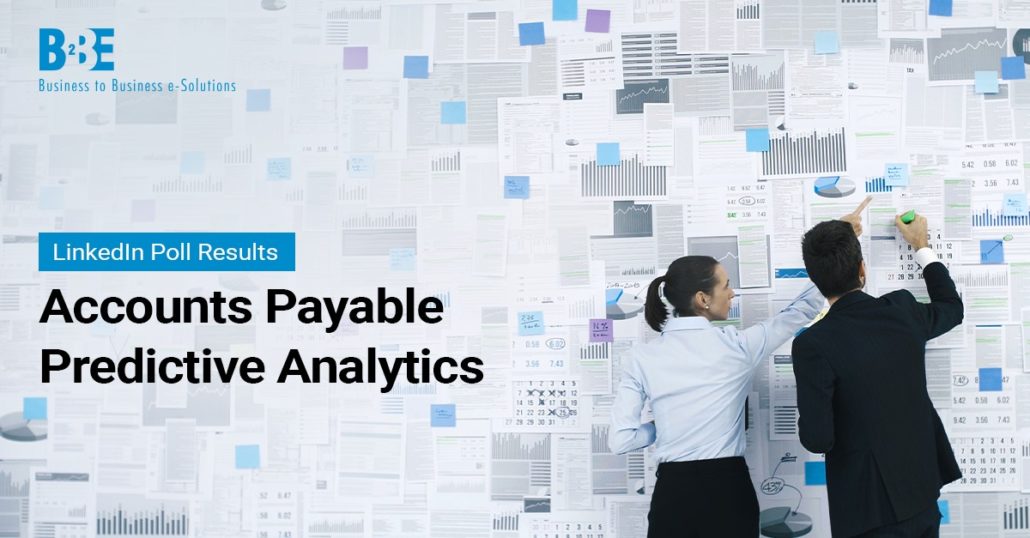In the world of finance, accounts payable is a critical function. It enables companies to maintain healthy cash flows and establish strong relationships with suppliers. However, manual accounts payable processes can be time-consuming, error-prone, and often lead to missed payments and late fees. That’s where predictive analytics for accounts payable comes in, offering a powerful tool to automate and streamline accounts payable processes. By leveraging historical data, machine learning algorithms can predict future payments, identify potential issues, and optimise payment timing and amounts. This also results in significant cost savings, increased efficiency, and better supplier relationships.
Poll results
In our most recent LinkedIn poll, we asked our social media followers if they use predictive analytics as part of their accounts payable process?
Accounts payable predictive analytics: what we found
Yes – 50%
In our recent poll, we found that 50% of respondents answered “Yes” to the question, “Do you use predictive analytics as part of your accounts payable process?”. This suggests that half of the companies surveyed have already adopted the technology to automate and optimise their AP processes.
There are several reasons why companies may choose to use predictive analytics in their accounts payable processes. As mentioned earlier, predictive analytics can help identify potential issues, optimise payment timing and amounts, and improve supplier relationships. Additionally, predictive analytics can also help reduce errors, minimise fraud, and increase compliance with regulatory requirements.
However, it’s important to note that implementing analytics in accounts payable is not without its challenges. Some companies may face obstacles such as data quality issues, integration with existing systems, and lack of expertise or resources to manage the technology.
No – 33%
Interestingly, our poll also found that a significant portion of respondents (33%) answered “No” when asked whether they use predictive analytics. This suggests a considerable number of companies have not yet adopted this technology and are missing out on the benefits.
The reasons why companies may choose not to use predictive analytics in their accounts payable processes can vary. Some companies may not be aware of the potential benefits. While others may not have the resources or expertise to implement the technology. Additionally, some companies may prefer to rely on manual processes or may have concerns about the reliability of predictive analytics algorithms.
However, it’s important to note that as more companies adopt analytics in their AP processes, those who do not may be at a competitive disadvantage. With predictive analytics, companies can gain valuable insights into their payment processes. In addition to making data-driven decisions to improve efficiency, reduce costs, and strengthen supplier relationships.
Not yet, but considering – 17%
Finally, our poll found that 17% of respondents answered “Not yet, but considering”. This suggests that a significant number of companies are aware of the potential benefits of predictive analytics and are considering adopting the technology in the future.
For companies in this category, it’s important to carefully evaluate the potential benefits and challenges of implementing predictive analytics in their accounts payable processes. While there are certainly benefits to be gained, it’s important to ensure that the technology is a good fit for the company’s specific needs and resources.
Fortunately, as predictive analytics technology continues to evolve, it’s becoming more accessible and easier to implement. This means that even companies with limited resources or expertise can benefit from this technology and streamline their accounts payable processes.
More information
B2BE’s experience in the supply chain sector allows our customers to build, expand and adapt successfully, enabling greater effectiveness. To engage with B2BE and offer feedback on what matters most to you and your business, make sure to follow us on LinkedIn and across social media. You can also vote in our latest LinkedIn poll. If you’d like to discuss your supply chain strategy, get in touch with us.
